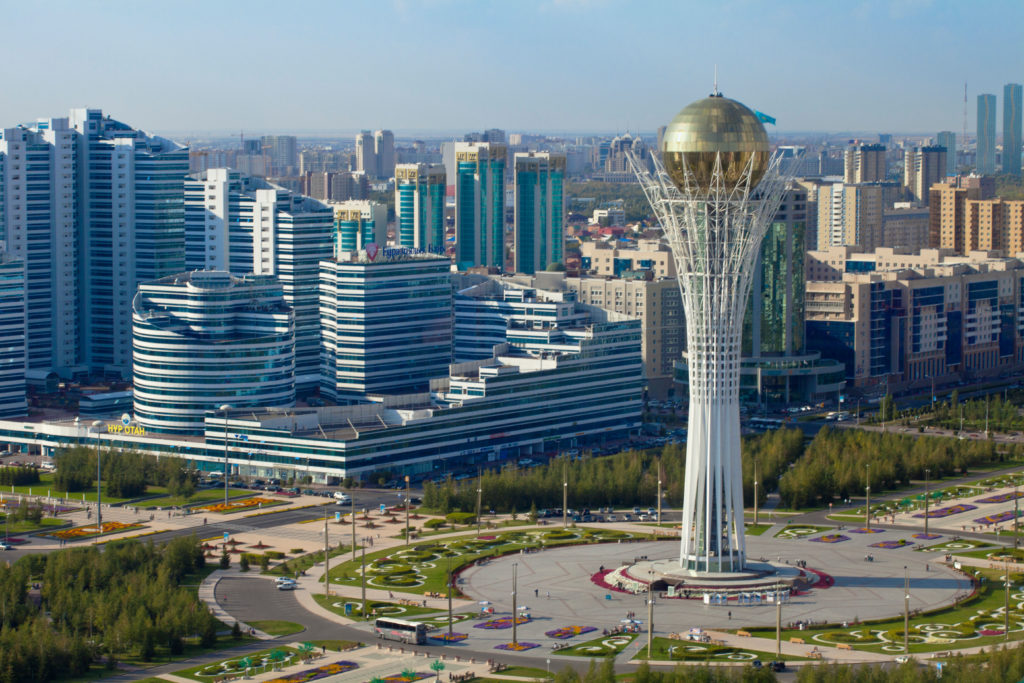NUR-SULTAN
Kazakhstan showed an increase in net foreign direct investment (FDI) compared to 17 countries with transition economies and 34 landlocked countries, according to the World Investment Report compiled by the United Nations Conference on Trade and Development (UNCTAD).
Kazakhstan sits on some of the most impressive natural resources in the world. Foreign energy majors poured into the country in the 1990s, attracted by its oil fields. Of the $150 billion in foreign investment in the Central Asian country since independence, $120 billion – or more than 70 percent- has been in natural resources extraction.
And while the vast country, with its relatively small population, attracts about 60 percent of all capital invested in the five former Soviet Central Asian states, COVID-19 has taken its toll, with FDI forecast to decline by 5-10 percent in 2021, before recovering in 2022.
According to UNCTAD, the FDI flows to the transition economies of South-East Europe and former Soviet republics declined by 58 percent to $24 billion in 2020, their lowest recorded level since 2003. FDI grew only in Belarus, Kazakhstan and Montenegro.
Kazakhstan is the second-largest recipient of FDI in the region, where inflows grew by 35 percent to $3.9 billion.
“Growing investment in mining, transport, financial services, telecommunication and energy compensated for declining inflows in construction, metallurgy and trade, which suffered particularly from the effects of the pandemic,” UNCTAD said.
Most of the FDI in the country’s large hydrocarbons industry was related to the Tengiz project, which is expected to be completed by 2022. The Tengiz oil field is operated by the Tengizchevroil, a consortium led by U.S. oil group Chevron. It also includes the U.S. Exxon Mobil, Russia’s LUKOIL and Kazakhstan’s state energy firm KazMunayGaz.
Project operators are currently implementing the Tengiz Future Expansion Project.
The list of projects also includes the Kazakhstan QazTechna bus manufacturing plant and the construction of the DoubleStar rubber and tire factory with the participation of Chinese capital, and the telecommunications project of Netherlands-headquartered VEON group (VimpelCom).
The economic crisis due to the pandemic also resulted in “major disruptions in the economic activities of landlocked developing countries (LLDCs) and severely hit their FDI inflows, which contracted by 31 percent to $15 billion”, the lowest level of aggregate FDI since 2007.
The drop affected all economies in the group except for Kazakhstan, the Lao People’s Democratic Republic and Paraguay.
The data of the UNCTAD report demonstrate that favourable conditions for foreign investors remain in Kazakhstan against the backdrop of the negative impact of the pandemic on the global economy.
According to the forecasts of UNCTAD experts, the growth of the inflow of foreign direct investment in 2021 will average 10-15 percent worldwide and 5-20 percent in developing countries.
It is reported that the COVID-19 crisis caused a dramatic fall in foreign direct investment in 2020 globally. Global FDI flows dropped by 35 percent to $1 trillion, from $1.5 trillion in 2019.

